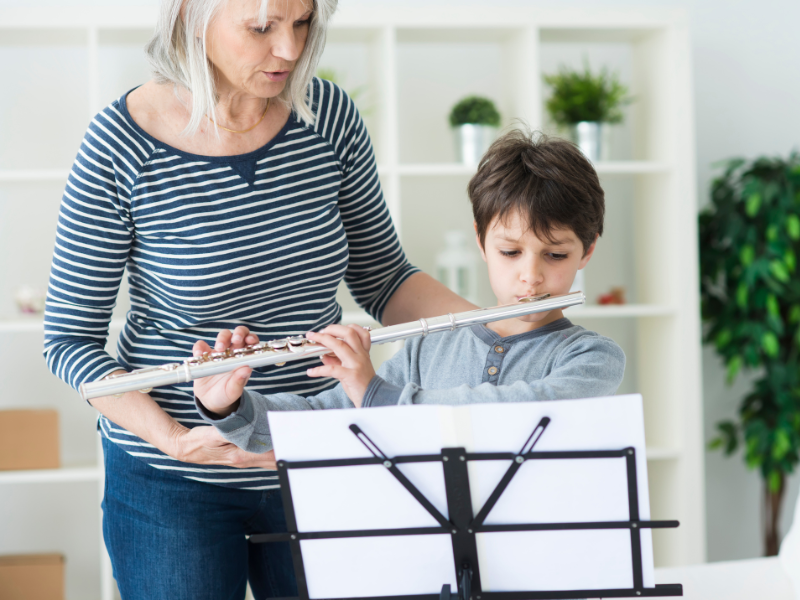Music learning can change the educational life for disadvantaged students

Music has been used as an intervention around the world to help students, and inevitably whole communities, who are living in challenging circumstances. These circumstances have a profound effect on children’s brain development and their education, and music programs have had seemingly miraculous impacts on both the social and educational issues associated with disadvantage.
This study is a longitudinal, instrumentally-based music program for 7-12-year-old students. They did small group learning, and ensemble learning with high-stakes performances with professional musicians to work towards. Here is a kicker of a summary statement towards the end of the paper.
“Results of the present longitudinal experiment are important in showing that music training may counterbalance the negative influence of living in low socio-economic backgrounds by enhancing several core cognitive functions: general intelligence, processing speed, concentration abilities and reading precision.”
Music learning: Counterbalancing disadvantage with every note.
BBB resources are now available in multiple languages—because every brain deserves the chance to learn music.
Melody isn’t just about pitch—it’s how we communicate emotion, intention, and meaning in music and speech alike.
What if perfect pitch isn’t a rare gift you’re born with, but a skill your brain can grow—shaped not by fate, but by how you listen, learn, and tune in over time?
Free Easter campaign download with posters and social tiles to help students understand the value of music learning.
What if you could advocate for music education without adding more work to your already packed schedule?
Engaging in musical activities offers profound benefits for our brains, enhancing various cognitive functions and emotional well-being.
While there can only be one winner of the BBB Music Teacher Award, we also recognize the outstanding efforts of our 2025 Runner-Up, Ruby Mensforth—a teacher whose dedication to fostering a love of music has left a lasting impact on her students.
Playing an instrument or singing in a choir isn’t just fun—it’s great for brain health too. A recent study found that people with musical experience have stronger memory and thinking skills than those without.
For many music teachers, March means concert season, assessment planning, and advocating for the importance of music education as budgets and schedules for next year take shape.
We know that speaking up for music in schools can feel overwhelming—but you don’t have to do it alone.
If you've ever conducted or played in an ensemble, you’ve likely felt it—that moment when everything clicks, the music soars, and your group performs at a level beyond anything you thought possible.
The World Economic Forum's Future of Jobs Report 2025 highlights the critical skills that will define the workforce of tomorrow.
A recent study in Ear and Hearing investigated how aging and hearing loss influence music perception, focusing on melody and timbre discrimination.
A new study in the Journal of Neuroscience reveals that our brains start processing rhythm as early as 27 weeks into pregnancy.
The 2025 Celebrate to Advocate Calendar is your go-to guide for making advocacy effortless this year!
A recent study from Waseda University has uncovered that when individuals listen to music, their heart rates synchronize, reflecting a unified physiological response.
A groundbreaking study in Nature Human Behaviour has revealed a fascinating genetic connection between musical rhythm skills and language-related traits, including dyslexia.
Recent research from the Georgia Institute of Technology has unveiled compelling insights into how music affects learning, memory, and emotions.
A recent study from Aarhus University reveals that while older adults can remember familiar music as well as younger individuals, their brains engage differently during the process.



















